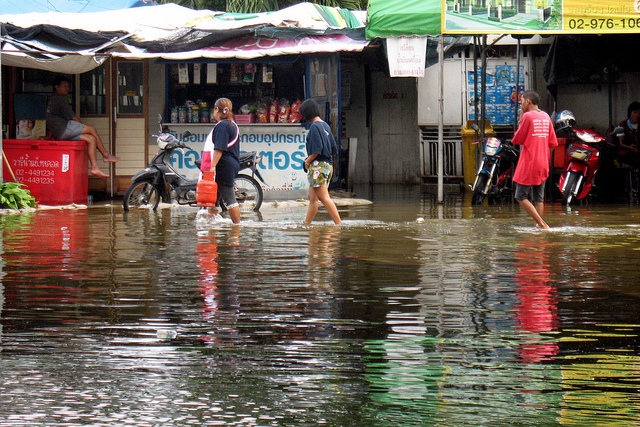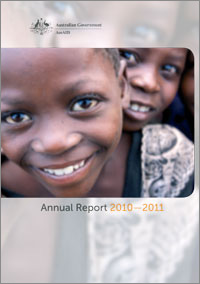AusAID digs deep for mining
AusAID launched a Mining for Development Initiative this month, which will see governance, sustainability and economic development assistance delivered to developing countries in conjunction with mining expertise.
The International Mining for Development Centre, a partnership of the Universities of Queensland and Western Australia, will provide education and technical advice to developing country industry representatives. In addition to this, the initiative will encourage countries to implement the Extractive Industries Transparency Initiative (EITI) and will provide support for community development and stakeholder partnerships. Industry-specific scholarships will also be delivered under the Australia Awards program. The program will also work to cement international best practices across the industry through an Economic Capacity Building Program.
The Age writes that more than $100 million will be invested into the program, which will benefit some 30 countries in the Asia-Pacific, Latin America and Africa. So far, the scheme has been warmly welcomed by industry and dubbed as ‘smart aid’ at CHOGM… but heavily criticised by Andrew Bolt. Paul Cleary in the Australian critiques from a different angle — if countries such as East Timor and PNG are being lauded for their best practice in the mining industry, shouldn’t we be learning from them?
Senate Estimates
AusAID was in front of the Senate Estimates Committee on October 20, answering questions on a range of issues including aid in Afghanistan, the controversial Cambodian rail project, the independent aid review and other projects.
You can read the full Hansard Transcripts of the proceedings here.
One of the more frivolous stories raised at Estimates was the Courier Mail’s article comparing AusAID’s financing of self defence classes for staff working in dangerous locations with the animated movie Kung Fu Panda. Baxter vigorously defended the need for staff to be adequately prepared for overseas posts in volatile locations, citing the recent kidnappings of aid workers in Somalia.
Another hot topic were media reports asserting that AusAID directly funded a drug rehabilitation centre in Vientiane, Laos, which has been condemned by Human Rights Watch for physically abusing detainees and holding them in poor conditions. The Australian funding for the centre was for library facilities for detainees — the aid program does not fund the centre’s operations.
AusAID has recently released its annual report for 2010-2011. It is available on the AusAID website. AusAID rates itself as having achieved 32 or its 38 targets over the past financial year, with the agency’s major shortfall being that its country strategies are not yet it place.
In other AusAID news, a new report shows that the aid agency has made significant efforts to drop the number of its international advisors and to reduce their remuneration. This has long been one of the areas of the aid program that has faced significant criticism.
Aid reaching targets, says Baxter
AusAID Director-General Peter Baxter recently delivered a lunchtime lecture for the Lowy Institute in Sydney. One of the key issues addressed in the Director General’s presentation was Australia’s aid spending, with Baxter (unsurprisingly) supporting an increase in the country’s aid commitment to 0.5% of GNI.
In his speech, he outlined the steps the agency would be taking to continue to strengthen the aid program and to scale up its activities. You can listen to the full talk here, as well as a supplementary interview for the Lowy Interpreter blog here.
During another public event on aid at Charles Darwin University, Kevin Rudd defended Australia’s delivery of aid to countries with corrupt governments, stating that it was necessary to get help to people who needed it regardless of governance problems.
Southeast Asia’s flood crisis
Thailand, Cambodia, Vietnam, Laos, Burma and the Philippines are all currently battling large-scale flooding following an unusually heavy wet season in the region. At the time of writing, around a third of Thailand was submerged, including the outer areas of the capital Bangkok. Aid agencies have warned of a potential humanitarian emergency in the capital, with increased risk of waterborne illnesses and extensive damage to business and factories.
The UN has estimated that some 825 people have already died in the disaster, with a large proportion of those fatalities being children.
Australia has offered support to the affected countries, supplying bedding, mosquito nets, hygiene kits, water containers, sandbags and health services to those affected by the disaster. The $5.5 million contribution will also go towards repairing irrigation systems. Additionally, Australian NGOs are assisting and conducting fundraising appeals.
Australian help for Libya
Following the death of Libyan dictator Muammar Gaddafi this month, Australia has offered assistance for the country’s leaders to work toward peace and stability. Prime Minister Julia Gillard reiterated that Australia stood ready to assist Libya through humanitarian and diplomatic channels. At present, Australia is the second largest state humanitarian donor to Libya, having committed $41.1 million from the aid budget. This money has supported food, shelter, water and sanitation programs for the Libyan people. The “humanitarian” qualifier is important. The US is the largest humanitarian donor, but Turkey has promised at least $300 million in aid, not humanitarian, much of it to rebuild infrastructure.
In addition to this, the government is planning to lend the experience of the Australian Electoral Commission to the transitional council to help the country prepare for democratic elections.
Commonwealth heads meet in Perth
The Commonwealth Heads of Government Meeting (CHOGM) was held in Perth last week. The Heads agreed on a number of issues, outlined in the forum communiqué, including revising development principles, focusing on food security, the challenges of small states and addressing climate change.
There were a raft of agreements and announcements at the forum, including several Australian aid commitments.
- The government will establish an Australian International Centre for Food Security to assist African countries in need. The objective of the $36 million Centre? Nothing less than “Delivering food security for the world’s poor” .
- Speaking at a Pacific Island Foreign Ministers breakfast, Rudd announced that Australia would make it cheaper for migrant workers to send home remittances.
- Australia announced $50 million in new funding for the global fight against polio.
- Following pressure from Plan and the Royal Commonwealth Society, the leaders agreed to work to end early and forced marriage.
ACFID Council
ACFID held its annual conference this month, focusing on development effectiveness.
Several discussion papers were released at the event, including “Closing the Gender Gap: Gender and Australian NGOs” (co-author Patrick Kilby contributed a Devpolicy blog post on the report) and “Religion and Development: Australian Faith-Based Development Organisations” (author Gerhard Hoffstaedter has also contributed a blog).
Highlights of the ACFID Council sessions are available online, including plenary and workshop summaries.
One of the sessions invited critics of the aid program and the NGO sector to have their say — the Lowy Interpreter has summarised the debate.
In Brief
- NGOs have called on the Australian government to boost its contribution to maternal health in the developing world, in light of the release of the latest UN State of the World Population report.
- Australia has strengthened its development cooperation with Pakistan through the signing of a formal partnership.
- The Conditional Cash Transfer scheme being run by the Asian Development Bank and AusAID in the Philippines has been highly praised in a review.
- A new report by Oxfam Australia and Manna Gum that examines the relationship between AusAID and multilateral development banks was launched.
- The ADB and AusAID are funding an urban development project to improve living conditions in the Tongan capital Nuku’alofa. However, one MP is asking why the project does not include a maintenance budget.
- AusAID this month launched a partnership with the Philippines to better prepare Metro Manila residents for natural disasters and the impacts of climate change.
Ashlee Betteridge is a Researcher for the Development Policy Centre. Aid Buzz is our monthly round up of the issues and news in Australian aid.






Leave a Comment